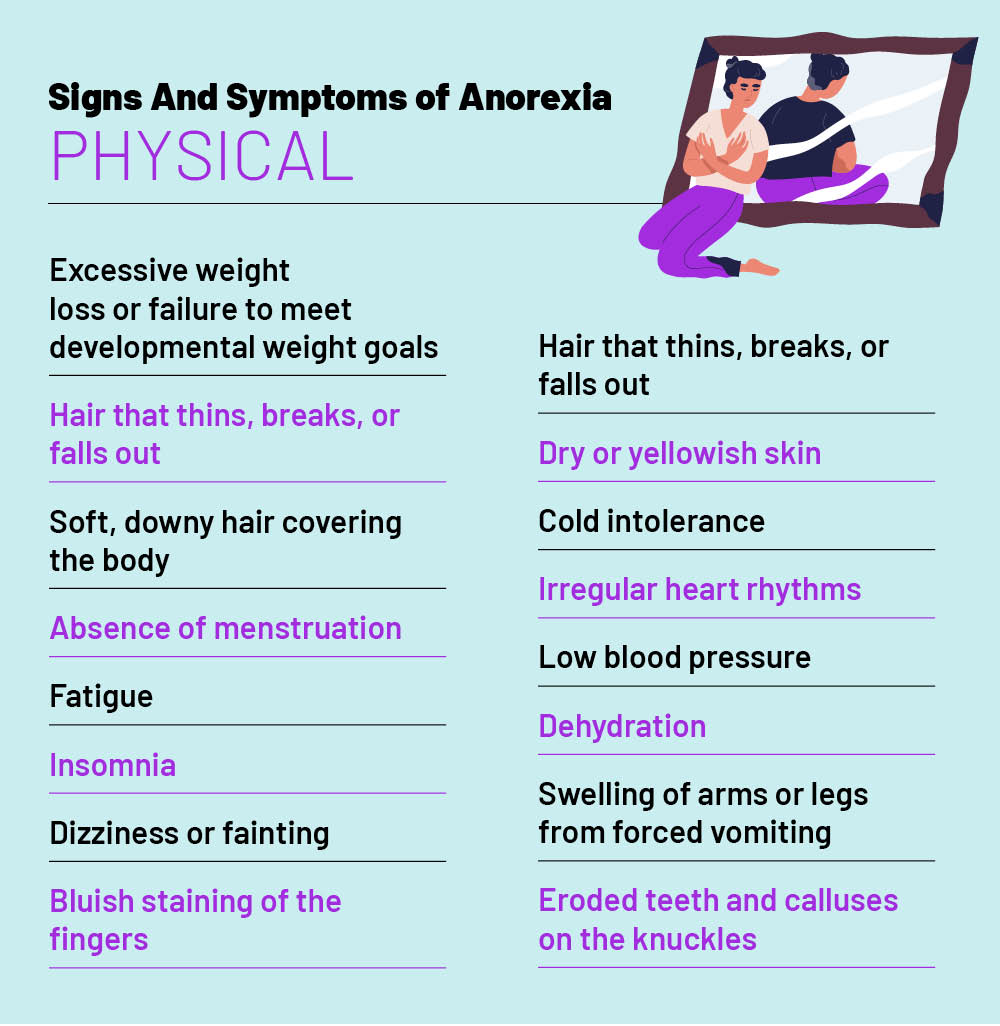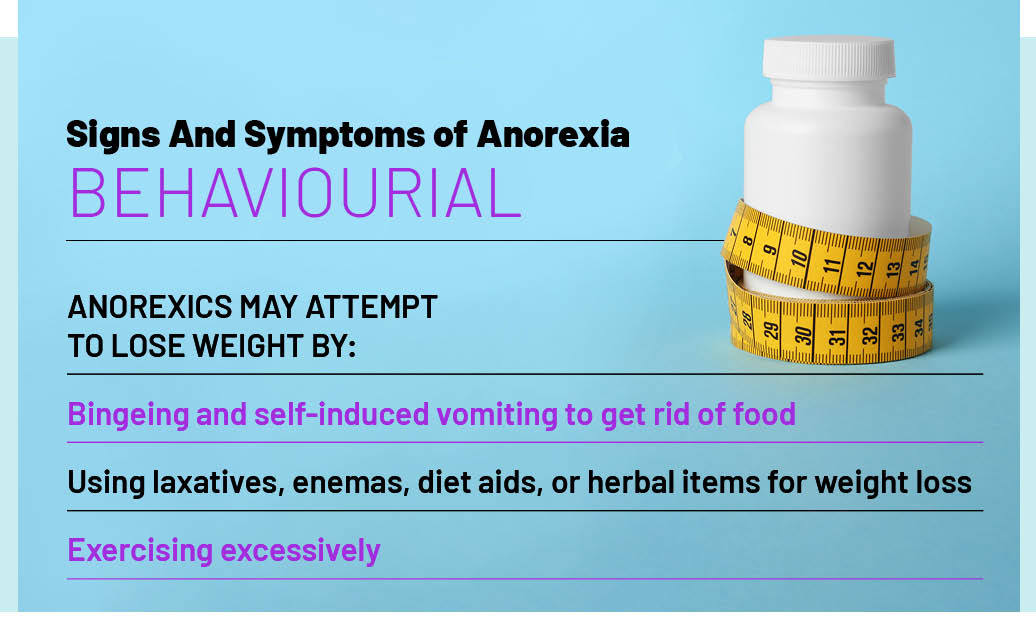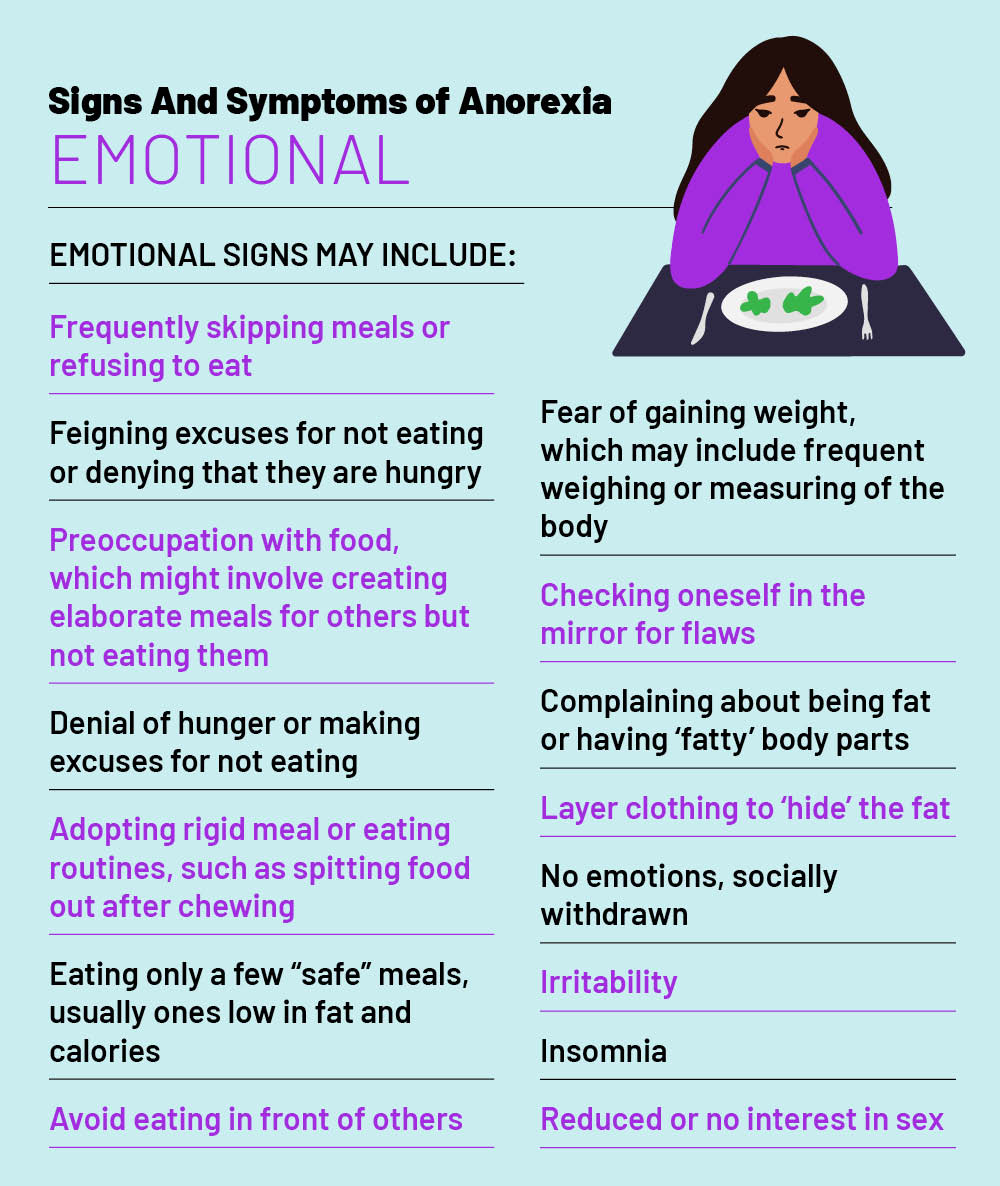Flipping through various fashion magazines, Sonali Sinha (name changed), a 17 year-old student, used to always be in awe of the models. She always wondered how each and every piece of clothing looked good on them, and yet when she bought something similar, it looked anything but nice on her. Though she was a little towards the heavier side, she never really thought she was fat, until she got more and more engrossed in the pages of the magazines. That is, until the day she decided to skip a meal. This continued for a couple of days, and when she noticed she lost a little weight, she continued with the practice. After a few weeks of skipping meals and shedding weight, she was happy with how she looked, but decided to keep a strict check on how much she ate, obsessively checking her weight after her meals. A couple of months in, she faced major health issues, and her mental well-being also took a hit. She was finally diagnosed with depression and anorexia.

So, what is anorexia, you ask? According to Ms Mehezabin Dordi, clinical psychologist, rehabilitation and sports medicine department, Sir HN Reliance Foundation Hospital, Mumbai, “Anorexia nervosa or anorexia is a type of eating disorder that causes rapid weight loss. Anorexia makes a person obsessed with calorie consumption and weight. They consume a very low-calorie diet and are terrified of gaining weight. When individuals lose weight, they generally feel better about themselves. The illness is most typically identified in adolescent females, but it can also affect men and older women.”

Causes
Much like a lot of eating disorders, there is little known about the cause of anorexia. Ms Dordi adds, “Anorexia nervosa's actual cause is unknown. Anorexics may have a negative perception of themselves. They might be preoccupied with becoming ‘perfect’. They may be seeking strategies to exert control over their lives. Other factors like biology, environment, and psychology are believed to play a role.” She elaborates them below:
Biological Factors: Anorexia nervosa development may be influenced by genetics and hormones. Anorexia and serotonin, a neurotransmitter produced in the brain, have been linked in several studies.
Social Factors: Pressure from society to seem thin may also play a role in the development of anorexia nervosa. Unrealistic body pictures in periodicals and on television can have a big impact on young people and fuel their desire to be skinny.
Psychological Factors: People with obsessive-compulsive disorder (OCD) are more likely to stick to a rigid diet and exercise routine like those who suffer from anorexia nervosa. Obsessions and compulsions are common among people with OCD.
Anorexia sufferers frequently suffer from other mental health conditions in addition to the physical complications. These are:
• Depression, anxiety, and other mood disorders
• Personality problems
• Obsessive-compulsive disorders (OCD)
• Self-injury, suicidal ideation, or suicide attempts
• Alcohol and substance abuse
Signs And Symptoms
Starvation is linked to the physical signs and symptoms of anorexia nervosa. Anorexia also involves mental and behavioural disorders such as an inaccurate body weight perception and a great fear of gaining weight or becoming fat. Ms Dordi lists out the different aspects below:
Physical

She also highlights that even though some physical symptoms may seem similar between anorexia and bulimia, there is indeed a difference. “Some people with anorexia binge and purge in the same way that persons with bulimia do. However, people with anorexia usually have an abnormally low body weight, whereas people with bulimia usually have a normal to above-normal weight,” she says.
Behavioural

Emotional

Diagnosis
A series of tests are conducted to rule out any other physical condition, as well as understanding the person’s mental health. Ms Dordi elucidates, “It is normally diagnosed by a variety of physical and psychological tests. This could entail tests in the lab to rule out any other physical issues.”

Treatment Plan
Recognising that you need help is one of the most difficult aspects of anorexia nervosa treatment. Many people who suffer from anorexia nervosa are unaware that they have a problem. This makes treatment more challenging.
Ms Dordi further talks about the treatment plan. “The main goal of treatment is to get your body back to a healthy weight and eating habits. A dietician can assist you in learning proper eating techniques. It's also possible that your family will be encouraged to participate in therapy with you. Anorexia nervosa is a lifelong struggle for many people. Individual or family therapy in the form of individual counselling or group sessions is recommended,” she says.
When it comes to medication, there is nothing in particular that can be used to treat this disorder, there are other medicines that are prescribed. Ms Dordi expounds, “While no drug has been proved to cure anorexia nervosa, antidepressants may be used to address the anxiety and despair that anorexia patients experience. The doctor may decide to keep you in the hospital for a few days to treat the effects of your anorexia nervosa, depending on the severity of your weight loss.”

How Can You Be There For Someone Struggling With Anorexia
Seeing your loved one going through anorexia can be extremely distressing. However, Ms Dordi suggests the following ways you can be there for them:
• Understand that they need all the support they can get from you.
• Convey to your loved one that they are not to blame for their condition.
• Be cognizant of how distressing the illness is for your loved one.
• Educate yourself about eating disorders.
• Check-in with your loved one about how they are feeling and what they are thinking, rather than making assumptions.
• Avoid discussing weight, shape, food, and diets in front of your loved one, and model a balanced relationship with your own food and exercise.
• Keep reminding yourself that things can change and reassure your loved one that recovery is possible.
• Ask your loved one how you can be of help – for example, discuss their feelings, helping them to stick to regular eating, putting in boundaries following mealtimes.
• Recognise any ‘accommodating or enabling behaviours,' which are actions you take to help your loved one cope with their eating disorder, such as cleaning up vomit or cooking new meals for them, or assisting them in meeting their therapy goals.